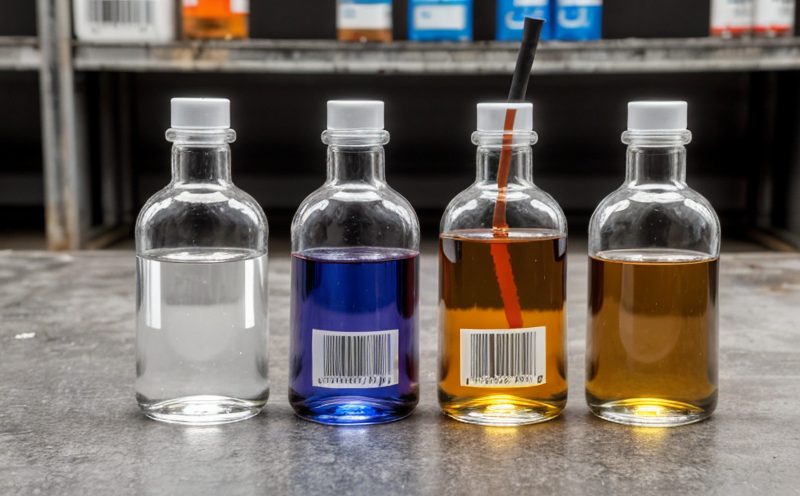ASTM D4742 Stability Testing of Automotive Oils
The ASTM D4742 standard provides a method to determine the thermal oxidative stability of motor oils used in automotive applications. This test is crucial for ensuring that engine lubricants maintain their performance characteristics over time and under high-temperature conditions. The primary goal of this testing is to predict how long an oil will remain stable before it begins to break down, which can lead to decreased engine efficiency or increased wear.
The ASTM D4742 test simulates the actual operating conditions that automotive oils encounter during use. By subjecting samples to controlled high-temperature environments for extended periods, it helps assess how quickly the oil degrades and whether it meets specified quality standards. This information is vital for manufacturers who need to ensure their products meet regulatory requirements and customer expectations.
During the test, a sample of motor oil is heated in a sealed container at 245°C (473°F) under nitrogen atmosphere. The temperature is maintained for several hours, during which time any volatiles are driven off through evaporation. After this period, additional heating continues to simulate real-world conditions where oils might experience further stress due to prolonged use or improper storage.
The rate of decomposition and formation of by-products such as sludge and varnish is then measured using various analytical techniques like viscosity measurement, colorimetry, and spectrophotometry. These measurements provide valuable insights into the chemical stability of the oil throughout its lifecycle.
A key aspect of ASTM D4742 is its focus on quantifying the formation of certain compounds indicative of oil degradation. For instance, polycyclic aromatic hydrocarbons (PAHs) and resinous materials are closely monitored as they directly correlate with the loss in lubricating properties of the oil. Understanding these changes allows for more accurate predictions about when an oil might need replacement or reformulation.
Another important factor considered during ASTM D4742 testing is the change in viscosity over time. Viscosity plays a critical role in determining the flow characteristics and overall performance of motor oils within engines. Changes in viscosity can indicate whether the oil is becoming too thick (which could reduce pumpability) or too thin (which might not provide adequate protection).
This comprehensive approach ensures that manufacturers have reliable data to guide product development, quality control processes, and maintenance recommendations for end users. By adhering strictly to ASTM D4742 guidelines, companies can demonstrate compliance with industry standards while also enhancing the reliability and longevity of their products.
Applied Standards
| Standard | Description |
|---|---|
| ASTM D4742 | This standard specifies the procedure for determining the thermal oxidative stability of motor oils by subjecting samples to controlled high-temperature conditions. |
Customer Impact and Satisfaction
- Ensures product quality meets regulatory standards
- Enhances customer trust through consistent performance
- Facilitates smoother supply chain management by providing reliable data
- Supports informed decision-making regarding maintenance intervals and replacement schedules
Competitive Advantage and Market Impact
- Achieves compliance with international standards, thereby opening up global markets
- Demonstrates commitment to superior product quality, attracting more discerning customers
- Provides valuable insights into product performance under real-world conditions, enabling proactive adjustments in formulation and marketing strategies





